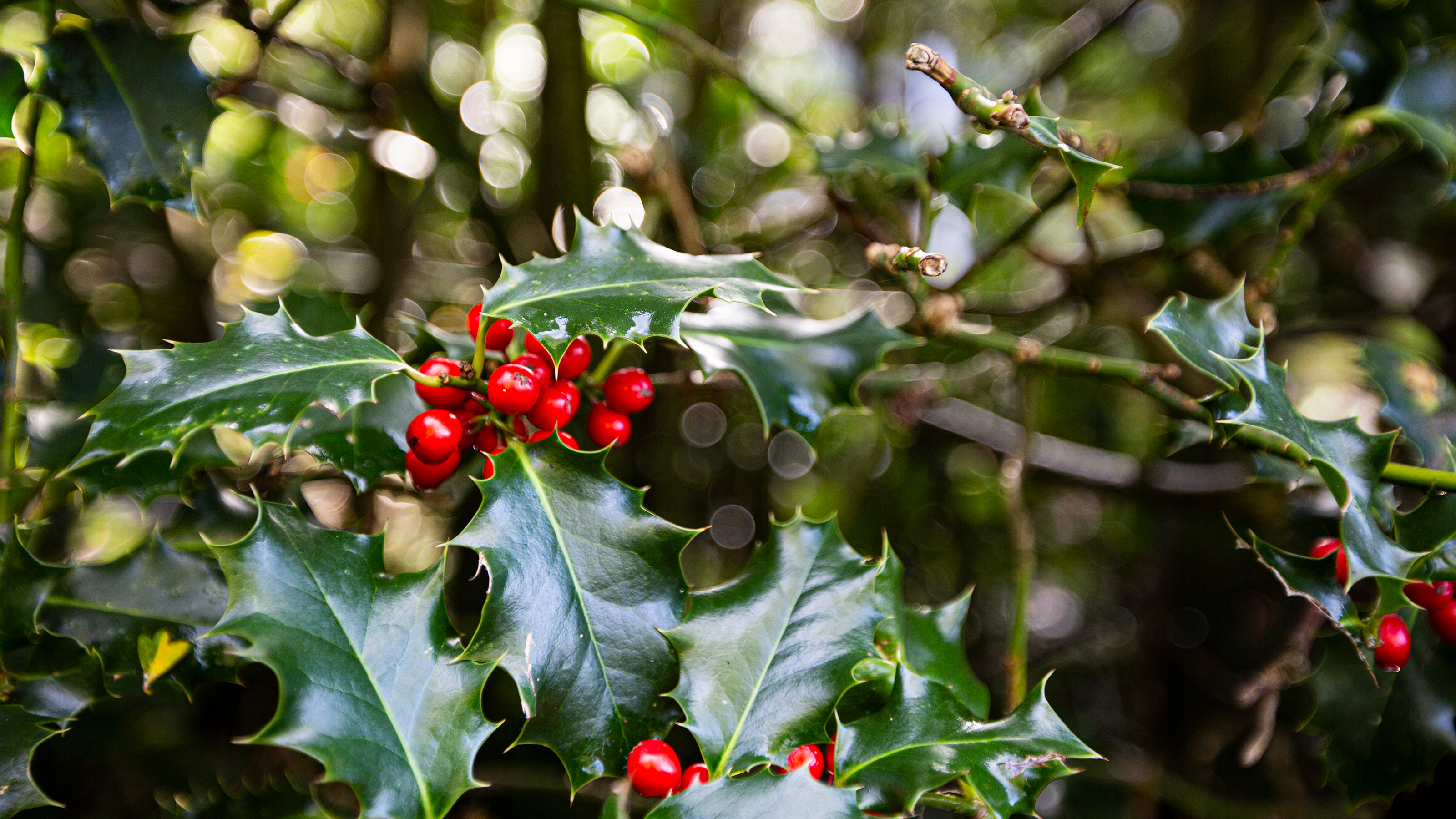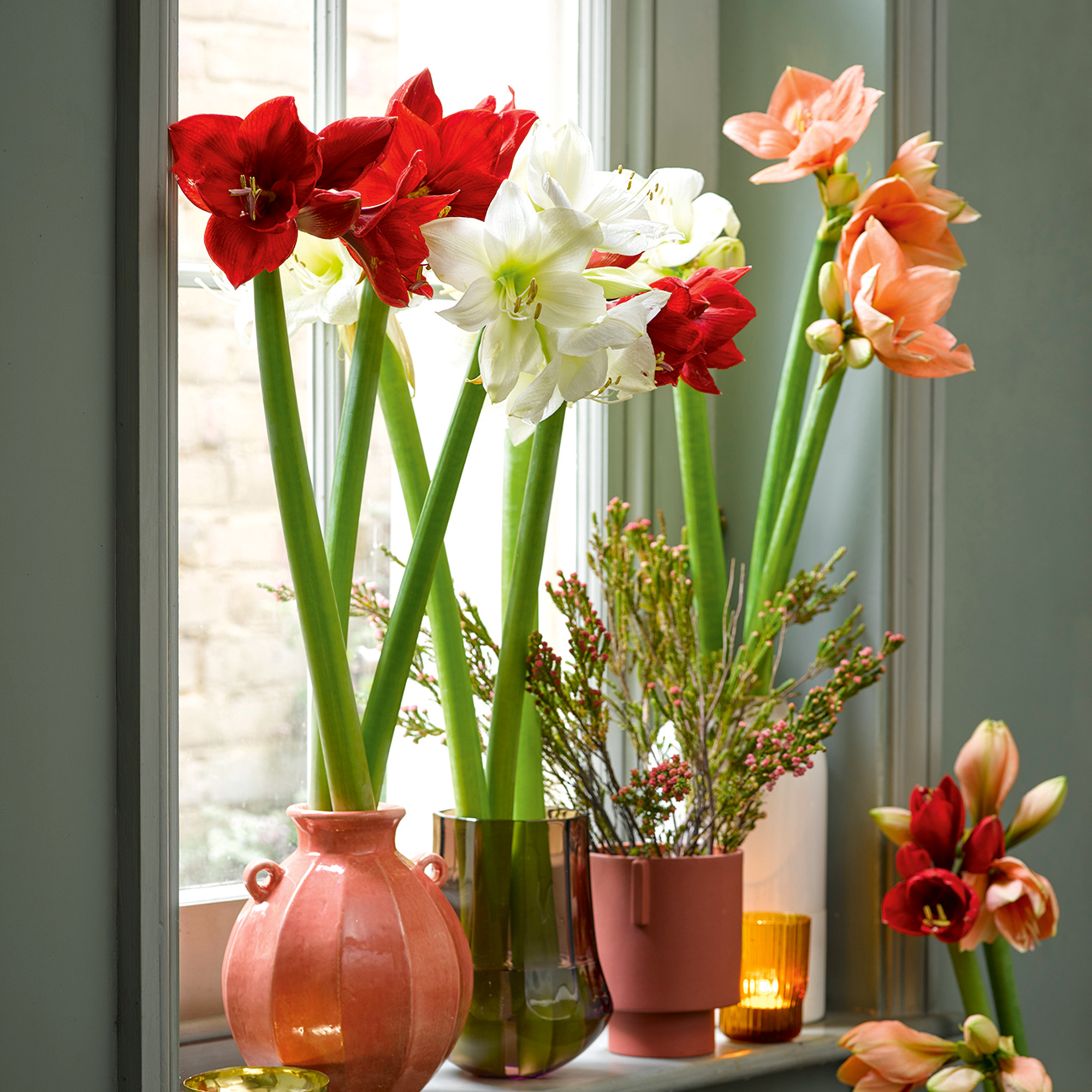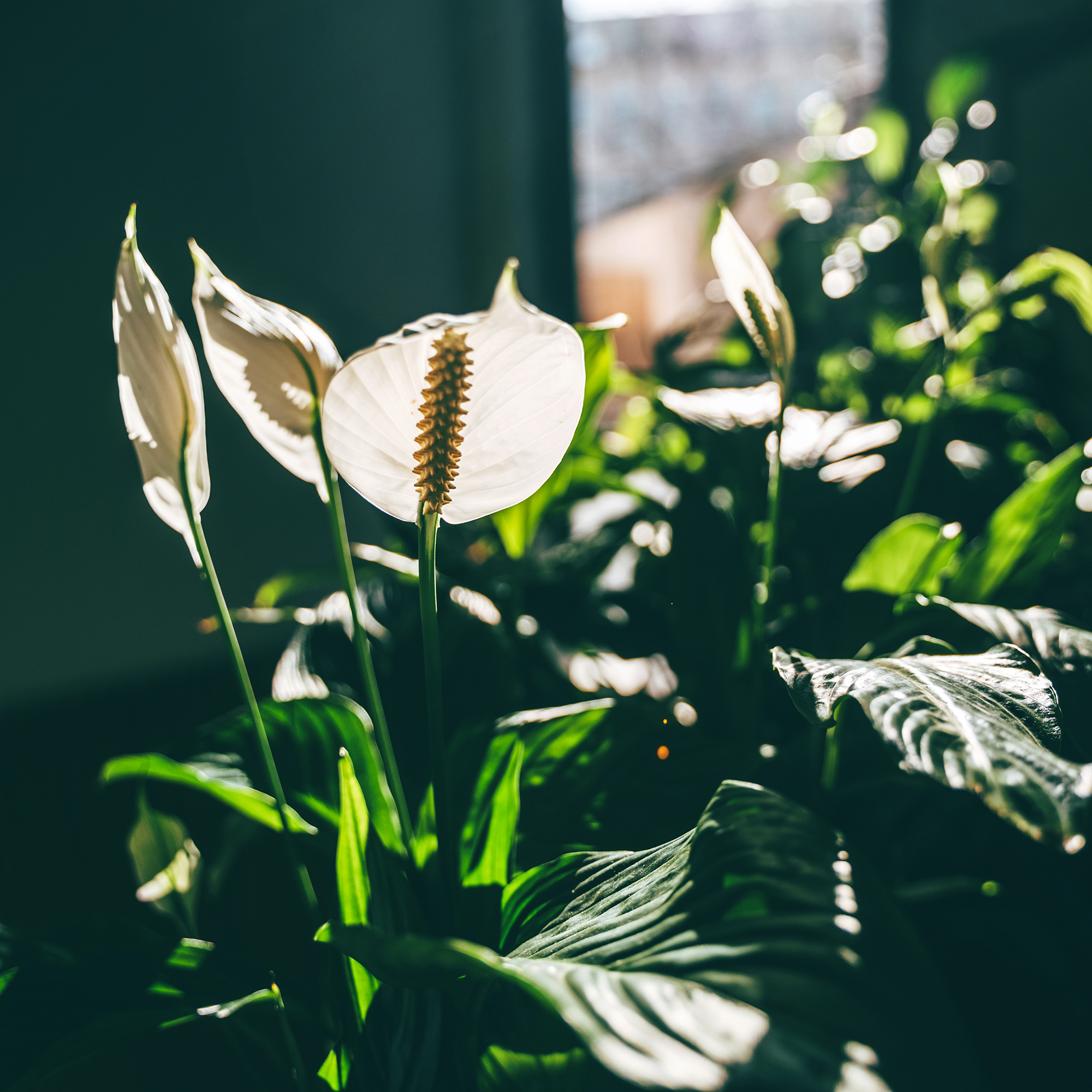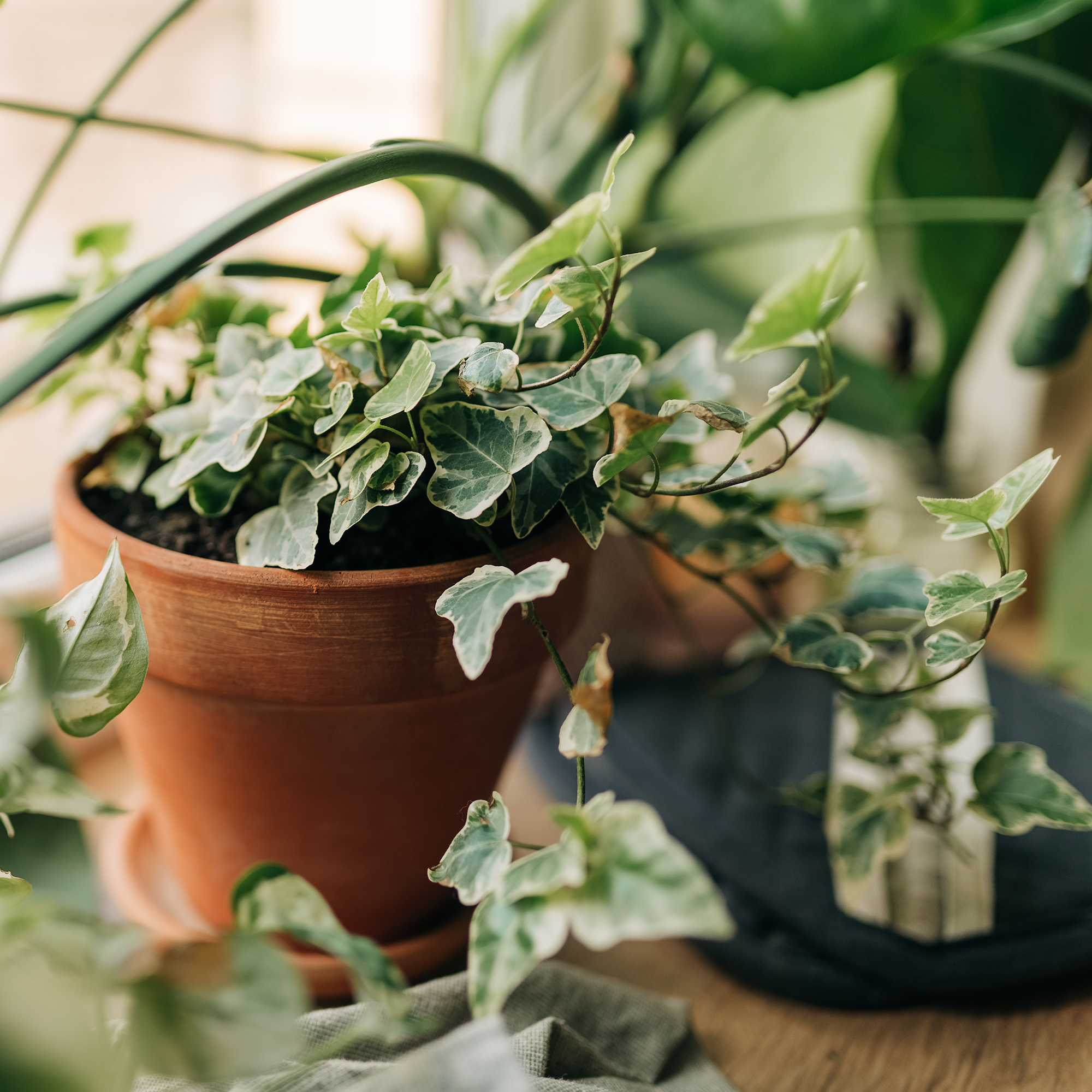7 festive plants that are poisonous to pets – experts urge pet owners to be vigilant this Christmas
Yes, Christmas trees ARE on the list


With the most wonderful time of the year getting ever closer, it’s never been more important to get clued up on the festive plants that are poisonous to pets. In doing so, you’ll protect your pets and avoid a hefty vet bill over the Christmas period.
Of course, that doesn’t mean that you have to ditch all of your Christmas decorating ideas. While plants are becoming more and more common in festive wreaths, hanging garlands, tablescape centrepieces, and even as popular Christmas gifts, there are still so many pet-friendly Christmas plants out there.
But to understand which ones you can use, you need to understand which ones you can’t use. And we’ve asked the experts to help us explain why you should steer clear of these festive favourites if you have furry friends in your house.
Festive plants that are poisonous to pets
‘Christmas plants can add an extra level of seasonal decoration to your home, bringing joy and colour during the winter months,’ says Lucy Rhead at Gtech. ‘However, Christmas can also be a tempting time for curious pets who want to explore the new decorations and scents that you have added to their home.’ So, these are the festive plants you need to be wary of.
1. Amaryllis

If you’re planning on planting amaryllis in time for Christmas, it’s important to factor in your pets when doing so. These stunning winter flowers may brighten up the winter months, but unfortunately, the whole plant - including the bulbs, flowers, and stalks - is very poisonous for animals.
'Amaryllis bulbs are particularly toxic to pets, especially cats,' says Steve Chilton, garden expert at LeisureBench. 'Ingesting any part of the plant can cause symptoms like vomiting, diarrhoea, and even tremors or seizures.'
Of course, this will only pose a threat if your animal eats the amaryllis, but you don’t want to give them that chance in the first place.
Sign up to our newsletter for style inspiration, real homes, project and garden advice and shopping know-how

Steve is a passionate and knowledgeable garden expert with several years of experience within the field and has developed strong expertise for all things nature and plants. Steve is a keen educator and loves to share this knowledge with others. He strives to simplify complex garden practices and encourage eco-friendly gardening.
2. Mistletoe

While it’s perfectly acceptable to smooch a human under the mistletoe, you might want to reconsider kissing your pet under this plant. Although it’s considered to be fairly low on the toxicity scale, there’s still the chance to poison your pets if you’re not careful.
‘In the rare cases that pets do react to this plant, they are most likely to have a wobbly stance, tremors or even fits,' says Lucy.
Thankfully, most people hang this plant on doorways, so it’s easy to keep mistletoe away from your furry friends.

Lucy has worked at Gtech for more than five years during which time she’s developed a passion for cleaning and gardening. Lucy loves learning about new product innovations, and how they can help make everyone’s lives a bit easier.
3. Christmas trees

Christmas wouldn’t be Christmas without a Christmas tree, but one thing you might not know is that these trees are technically poisonous to pets. And this is the case no matter whether you opt for pine, fir, or spruce.
'The needles, with their sharp ends, can cause injuries to the animal’s face, mouth, and digestive tract if ingested,' explains Dr. Marta Vidal-Abarca, in-house veterinarian at PetKeen. 'The sticky sap could also get on their fur and be licked off during grooming or consumed directly. It can cause nausea, vomiting, weakness, and irritation of the skin.'
So, always keep your best vacuum cleaner handy to keep these needles out of harm's way, opt for a ‘no needle drop’ tree, or go for one of the best artificial Christmas trees instead.
4. Lily

Although many of the festive plants on this list are toxic to both dogs and cats, the lily is a slight exception. While it’s generally a good idea to keep lilies away from dogs, this plant won’t pose as much of a threat to your pooches as it will to your cat.
The peace lily, in particular, is extremely toxic to cats - and you need to keep your cat away from it at all costs. In fact, if your cat drinks the tiniest bit of water from the vase or nibbles on the smallest bit of leaf, it could be fatal.
It’s also important to know this fact if you plan on gifting lilies to a family member or friend during this festive period.
5. Holly

Often used in festive wreaths and Christmas displays, the dark green leaves and red berries of the holly bush are a must-have during the festive period. It’s important to be wary of this plant around your pets, though.
'Holly plants contain toxic compounds that can cause vomiting, diarrhoea, and abdominal discomfort in dogs and cats,' says Steve. 'Unfortunately, pets aren't really phased by the spikes on their leaves, so do be extra careful if you have any holly outside or in the home at all. The berries are especially toxic and are even toxic to humans!'
So, make sure you keep any inquisitive pets (or tiny humans) pets away from the holly bushes in your garden, too.
6. Poinsettia

Known for its festive red leaves, poinsettias have long been associated with Christmas. But while many people are wondering why their poinsettia leaves are dropping, more should be worrying about the fact that the leaves are red in the first place.
In fact, the red colour is a warning sign that this plant is mildly toxic to animals. 'The toxic trait of this delightful shrub is in its milky sap, but the good news is that serious toxicity is quite rare,' says Dr. Karyn Kanowski, veterinarian editor at Hepper. 'The most common complaints are skin irritation, drooling, and mouth pain, but some dogs can end up with vomiting and diarrhoea if they overindulge.'
The irritant sap would be extremely uncomfortable for an animal to eat, so it’s unlikely they’ll eat a large amount. However, it's still in your animal's best interests to keep it out of their reach.
7. Ivy

Ivy’s vining qualities lend itself well to festive displays, but it’s no secret that ivy can be a danger to those who come into contact with it, both human and animal. The whole plant contains poisonous saponins and polyacetylene compounds, but the largest concentration of these toxins is found in the leaves.
If you touch it, you’ll probably come out in a rash or feel your skin become irritated. If your pet ingests this plant, however, they may suffer from severe vomiting and stomach pain.
Because of this, it’s a good idea to keep ivy away from your animals or to just avoid using it entirely.
FAQs
What festive plants are safe for cats?
The Christmas cactus is a great festive plant to have around the house during the festive period if you have pets. These plants don’t have the tell-tale spikes and spines of many other cacti, and they’re not considered to be toxic in any way.
Orchids are also becoming more and more popular during the Christmas period, with many people choosing to gift these tropical plants to friends, family and colleagues. Thankfully, these are also safe to have around cats and won’t pose any threat to them.
Of course, you also need to be wary of what festive plants aren't safe for cats. 'Although cats like to eat grass, most are very wary of eating anything unusual, which means plant poisoning cases taken to the vets are rare,' advise the experts at The Cats Protection. 'When a cat does become unwell, it is usually because something has brushed on their fur or paws, which they have then ingested while grooming.'
'To keep your cat safe, we recommend avoiding toxic plants and flowers altogether.
Are amaryllis plants poisonous to pets?
Amaryllis is one of the most popular festive plants you can plant and buy, but it’s important to note that amaryllis is very poisonous to pets. Unlike other toxic plants where just the leaves pose a threat, the whole amaryllis plant is dangerous - from the bulb all the way up to the flowers.
Because of this, experts suggest keeping this plant away from pets at all times.
With this in mind, you can have a happy and healthy Christmas with your animals by your side.

Lauren Bradbury has been the Content Editor for the House Manual section since January 2025 but worked with the team as a freelancer for a year and a half before that. She graduated with a Bachelor’s degree in English and Creative Writing from the University of Chichester in 2016. Then, she dipped her toe into the world of content writing, primarily focusing on home content. After years of agency work, she decided to take the plunge and become a full-time freelancer for online publications, including Real Homes and Ideal Home, before taking on this permanent role. Now, she spends her days searching for the best decluttering and cleaning hacks and creating handy how-to guides for homeowners and renters alike, as well as testing vacuums as part of her role as the Ideal Home Certified Expert in Training on Vacuums, having spent over 110 hours testing different vacuum models to date!